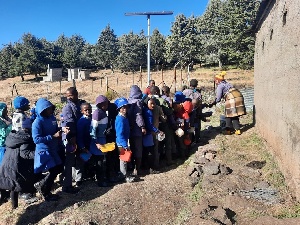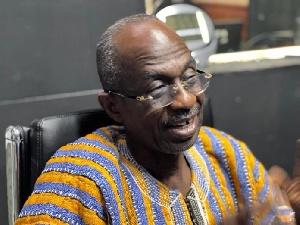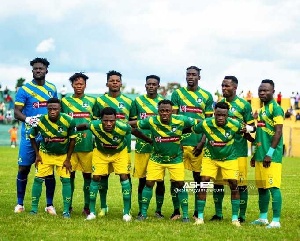Africa News of Friday, 6 June 2025
Source: www.ghanawebbers.com
Lesotho: U.S. Cuts Food Aid to 36,000 Children in Lesotho
Food Insecurity in Rural Lesotho
About one in five people in rural Lesotho face food insecurity. A program that fed over 36,000 learners at 200 schools will now end. This decision comes after sudden cuts by the US Department of Agriculture (USDA). The Lesotho government claims its own food program will take over. However, this government program has a poor track record.
Many small-scale farmers expanded production to supply the USDA-funded program. Now, they are facing significant losses.
At Ha Samuel Primary School in Semonkong, students line up for morning porridge at 8:23 am. Many would not have breakfast without this school food scheme.
Over 20% of Lesotho's population risks not having enough food. Malnutrition causes high rates of childhood stunting. Many affected children come from child-headed households. One teacher noted, "For some, lunch is their last meal of the day."
Ha Samuel is part of Bokamoso Ba Bana, a $28.5 million program funded by USDA. This initiative aimed to support more than 36,000 children from 2022 until 2027. Education Minister Ntoi Rapapa estimates it feeds 17% of primary school learners in Lesotho.
GroundUp learned that USDA has cut funding abruptly for this program. CRS announced on May 21 that over 780,000 children across eleven countries will be affected by these cuts.
Schools in Lesotho have not received formal notice about the program ending. Seven teachers from three schools reported hearing rumors but no official confirmation.
Matlhokomelo Liporo manages feeding at Ha Samuel and heard from CRS staff about possible cuts due to President Trump's aid reductions. Mojapela Ramothibe from St Leonard Primary said their 630 students depend on these meals for focus and participation in class.
CRS also trained schools to grow vegetables and provided seeds for self-reliance. However, other necessary food items still need to be supplied.
Kris Ozar, CRS Country Representative, confirmed the program's end but stated they are assessing implications and next steps with partners.
These funding cuts are part of broader US government measures affecting Lesotho's health sector and HIV response efforts. Recently, a US Congressional delegation visited to evaluate American aid impacts on the country.
More Than Just Meals
Beyond meals, CRS partnered with the Lesotho College of Education to offer scholarships for preschool teachers between 2024 and 2026.
The project aimed to boost the local economy by procuring food from regional farmers over five years. It planned to buy around 3,050 tonnes of local produce alongside US-donated staples like maize meal.
School infrastructure improved under this project as well. Ha Samuel previously lacked toilets; students used nearby bushes instead. CRS built proper sanitation facilities and provided sanitary pads for girls during menstruation.
Liporo mentioned boys were trained about menstruation too: "Now boys help classmates who need pads." This empathy was absent before the training.
With the program ending, teachers fear returning to an under-resourced government feeding scheme again. 'Mammenyane Thatho from St Leonard said many kids arrive hungry expecting their first meal at school.
'Mabafokeng Mothibi works with farmers supplying vegetables to schools nearby and fears disaster due to the project's termination: "Almost every vegetable farmer here was involved." She helped resource-poor farmers with seedlings while splitting sales revenue with them.
Mothibi bought vegetables at M10 per kilogram and supplied nearly a tonne monthly across different schools. Many farmers expanded production anticipating continued demand under CRS; now they risk unsold crops if it ends.
Cooks also worry about losing their livelihoods as they earned M3,200 monthly under CRS—more than double what they made before under government programs.
Government Assurances
Lesotho's Principal Secretary for Education Ratšiu Majara insists that the government can continue feeding programs despite funding loss: "We guarantee children will receive meals."
The government allocates about M240 million annually for school feeding programs and receives additional support from WFP (World Food Programme). In 2024, WFP secured €600,000 (M11 million) from Monaco and around M25 million from Japan for boosting these programs in Lesotho.
However, teachers remain skeptical based on past experiences with government programs running out of food frequently: "Attendance would drop," Ramothibe recalled; some kids only came to eat at school.
Liporo added that many children walk two hours hungry just to find no food upon arrival at Ha Samuel School.











